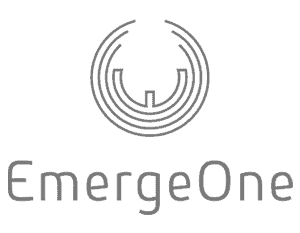
You know that digital marketing is booming, and you’re now thinking how to start a digital marketing agency, possibly even from your own home.
If you want to get into this profitable sector, it’s not as difficult as you may believe. It’s how the Pearl Lemon Group got started.
In this day and age, starting a digital business of any kind is easier. For example, 20+ years ago, the entrance barrier to starting a digital marketing agency was significant. It was practically impossible without a big initial investment in what was a primitive digital landscape.
Now, only one or two very skilled individuals and a small supporting team can build a perfectly sustainable digital marketing agency from the ground up using the right tools and expertise! And maybe a little help from your friends.
As previously stated, the digital economy is experiencing unprecedented growth, and everybody wants a piece of the pie.
That’s why this guide is a practical, in-depth resource that will show you how to start a digital marketing agency from the comfort of your own home.
This is a long guide, and we hope you read it start to finish. You certainly should if you want to get the most out of it. Hopefully it fully answers the basics of how to start a digital marketing agency, and anything it does leave out, you can always reach out to those who’ve been there before for help.


As mentioned, the digital marketing landscape is vast, mainly because any business, even one that is very much physically based, needs a good Internet presence to survive. In this day and age, even a local pizzeria needs a good web presence if it wants to thrive, and even be found. This means that, in theory, your scope of clients is huge.
It’s pointless for us to tell you what service to sell. If you want to start a digital marketing agency, you’ll need to have a skill set that businesses would value
That’s fantastic.
It’s critical that you understand how much value the service will bring to a firm. It’s referred to as the Return On Investment (ROI) in the business world (ROI). The harder it is to defend your worth, the more difficult it is to obtain and retain clients.
Consider the following scenario:
CRO – I’ll make your site design look and function better, so you can make more money.
Graphic Designer — I’ll create eye-catching marketing graphics for you.
Who would you collaborate with if you only had a limited marketing budget? The answer, we think, is pretty much a no brainer. More people will be interested in your digital marketing agency and its services if the ROI case is made obvious to them. It’s critical that you get this right. Again, we don’t know just what yours will be, but it’s important that you do before you go any further.
You’ll also need to stop at this point and determine if you really are cut out for the life of an entrepreneur in general. Sometimes, when folks hear someone is starting their own business, they imagine someone leading this uber cool lifestyle where they work for four hours a day and spend the rest of their time doing what the heck they like. That’s not the way it works. Maybe that’s what the likes of Jeff Bezos and Elon Musk do, but they still had to work very hard to get to that point.


Starting any business, and perhaps even especially a digital marketing agency, as it sells services and concepts rather than physical goods, is hard. Really hard. There are lots of failures, they’ll be obstacles, and you’ll need to put in a lot of hours, more than you do if you currently have a conventional job. The payoff can be massive, in terms of earnings, ‘job satisfaction’ and personal fulfillment, but if you are considering starting a digital agency because you think it will be, you are probably better off sticking to your day job.
Speaking of jobs, while you may not need too many just yet, give some thought to how you are going to find staff. If a project calls for extra help, you should at least know where to find it, and what good staff looks like. LinkedIn can be a big help here, as you can make connections with people in the fields you may (hopefully will) need to hire for later, without making any big promises right now.
So, are you ready for all those challenges? Still want to start a digital marketing agency? Then let’s keep going.
The second step when starting a digital marketing agency is to figure out who you’re going after.
The benefit of narrowing your focus is that you can appear to be an authority on the subject. You’ll become an expert in a field once you start landing clients.
This is useful for referrals, but it also makes charging a premium for your expertise easier.
You’ll almost certainly wind up undertaking some kind of customer persona and sales and marketing activity as part of this process. This procedure is divided into three steps. You’ll need to do the following:


After you’ve done all this, you should be left with a customer persona, or set of customer personas, that can guide the rest of your work.
The term digital marketing is now a very broad one. While, eventually, you can offer as many services as you think you can sell, and have the team to execute, starting out with a smaller set of the core services you know you really can excel is the best way to go. The question of how to start a digital marketing agency really covers businesses doing all kinds of things, but you need to nail down some basics to get started with.
What should those be? Again, that will be unique to your firm, but, from experience, we can tell you that the following are in the highest demand right now:
This is still a broad list, and should make your digital marketing agency look rounded to most clients. Later on, when your firm is better established, you can branch off into the new, exciting stuff that will help you stay passionate about what you do. For us right now that’s the Metaverse, but who knows what it might be for you by the time you get to that point.


Yes, you are hoping that you’ll be doing lots of digital marketing for others very soon, but you need to start with your own business. In the beginning, the good news is that this can be very basic, and it won’t need to cost you a huge amount of money.
As your digital marketing business grows you can finesse things, add more bells and whistles to your website etc. However, basic should not mean substandard or cheap looking. So, as we go through these next steps, keep in mind that you should spend as much as you can here, without starving, and if you do things right the ROI for you will be worth it.
If you call or email a cold lead, you can bet that one of the first things that person will do is Google your company. This is why you need a website for your business.
It is possible for you to establish a simple website and still get good results. Normally, a few core pages suffice. We suggest that you make at least three pages. They are as follows:
Only the website homepage is absolutely required of these three pages. To get results, it doesn’t have to be anything special. Not in terms of design, anyway. What will need to be special is the content. Make it good. Don’t even let a single typo get past you. Make it fast.
You can create these types of websites with simple web builders. There are an increasing number to choose from, but you may want to start with a web builder that is easily scaled, and optimizes for SEO well.
WordPress is ideal, as it’s flexible enough for a small business but can be scaled to massive levels. There are some very big name companies still running on the WordPress framework they have had in place since the beginning. And of course, as you will just be starting your digital marketing agency and money will be tight, the fact that so many elements of WordPress are free is another big bonus.
You won’t be able to stop at the website of course. Even if your targets will solely be B2B clients they will expect your digital marketing agency to have a social presence. No, they may not want to connect with you on Instagram – although if they are in creative fields like fashion and home decor that can be the perfect place to connect – but at the very least they will expect to see a solid LinkedIn presence.
If you are not very familiar with LinkedIn, that will need to change. Not only will a good profile for both your new digital marketing agency itself and its key staff be excellent for brand building and establishing authority.


You’ll also need a branded email address for everyone who is likely to communicate on behalf of your fledgling digital marketing agency. Something along the lines of [email protected] will suffice. When conducting outreach or communicating with a lead or customer, using a branded email account will make you appear more professional.
It’s a small outlay of cash. It’s possible with a Gmail integration, which costs around $4 per month. If you need help setting up a branded email account with them, you can find instructions here. It’s straightforward, and it integrates with a set of Google products that will almost certainly be relevant to many of your client marketing activities in the future.
We’ve gone through how to figure out what kind of clients to target, how to create a customer persona, and how to put up some basic marketing materials for a digital agency at this point. This is the easier part. The difficult part is turning your great idea into a profitable business.
You must establish a list of companies to approach in order to expand your business.
There are numerous resources available to help you create these types of lists. Depending on the size and type of organization you wish to target, here are several resources to consider:
List the prospects in a Google Sheet to help you organize your data. Then, using LinkedIn, try to put a name to the relevant decision-makers at each organization.


To begin, use the platform to look up the company’s name. Then, on the ‘people’ tab, type in the job title that applies. If you intend to engage with big businesses, make contact with a number of key decision-makers. On your Google Sheet, jot down the names of the people. Following that, send a connection request.
This is where those great LinkedIn profiles you established earlier will really help. If the person you are requesting a connection with can see immediately who you are, what you do, and (hopefully) that you already have connections with others who they are familiar with, or who are relevant to them, without having to even head to a website then you’ll already have an advantage.
You’ll want to do the standard social media activities as your professional network grows. Like and comment on other people’s postings, and so on. Some people will automatically engage in conversation as a result of this type of interaction. This is your first point of contact.
But, as time-consuming as they can be, social media networks are also a great place to start developing some good offsite authority. On your own website you are obviously going to say that you are the best, your businesses are the best and that the services you offer are stellar. And that’s OK. But the social proof that you can gain via networks like LinkedIn is very powerful, and can provide you with a significant edge over your competition.
As yours will be a digital marketing agency, generating leads is something you should be able to do without too much input from us, especially as only you know what talents our team can bring to the table right now. Blogs, videos, podcasts, general PR, we’ll leave that up to you.
However, there is one very overlooked lead generation tactic we want to touch on here, as it played such a large part in the early success of Pearl Lemon. And that’s cold email outreach.
A lot of people are either a) sure cold email does not work or b) scared of it or c) a bit of both. Which is a shame as it can be so powerful.
If you want a deeper dive into how cold email can be used when starting a digital agency we recommend downloading the Pearl Lemon Group’s founder Deepak Shukla’s free report here. And we do suggest you do, as it’s a truly underused way to generate leads for your new digital marketing agency that will work in the beginning and keep working as your company grows.


You have generated leads. Great. Now you have to close them. Not all digital marketers are great salespeople. But you can learn how to take those hard-earned leads and turn them into the clients you need to move your digital marketing company from concept to reality.
We haven’t yet come across a technique that guarantees every lead will become a client. There are, however, things you may do to increase your chances of selling.
Get your prospects to fill out a survey.
Questionnaires are a great way to figure out what people want. We utilize them, but we haven’t seen them employed much in our competitors’ sales processes, but they should be.
Before your sales call, we recommend that you have each lead fill out a short questionnaire with between 10-15 questions. You should strive to obtain answers to the following questions in your survey:
In a sales meeting, you want to get responses to all of these types of inquiries. You will be more prepared if you have the answers to these questions before the meeting. Understanding what customers want and how they evaluate success is critical because it allows you to offer your service – and create a pitch – in a way that coincides with their business objectives.


You’ve probably heard the saying, “By failing to prepare, you prepare to fail.” The adage holds true for most aspects of life, including sales meetings.
Spend 30 minutes to an hour researching the firm and the individual you will be meeting. A brief search of LinkedIn will usually reveal information about the individual you’re meeting with’s work background. You should be able to learn about their past through social media.
The goal of studying someone like this is to find common interests and have a better grasp of their job history.
How long have they been in their current position and where have they worked?
Do they make information available online for a variety of publications?
Did you attend the same university as your buddies or had friends who attended the same university as you?
What are their interests? Do you have a similar passion for the same things?
You can come up with topics to chat about by doing some background research on the person. This is useful at the beginning and end of a meeting, when you tend to chit chat. Meanwhile, knowing something about the company you’re pitching demonstrates that you put in some effort to prepare for the meeting and makes a positive impression.


What we’ve covered here in answering the question of how to start a digital marketing agency are the basics you’ll need, it’s more complex than this of course. You’ll also need to address staffing, business composition – LLC or sole proprietorship? – and even things like WHERE you are going to work.
However, this should have helped you understand the scale of what will be involved, whether you are willing and able to take on the challenge and how viable answering the question of how to start a digital marketing agency by actually doing so really is for you.














If you have any questions, please do get in touch with us! If you’d prefer to speak directly to a consultant, Contact Us!